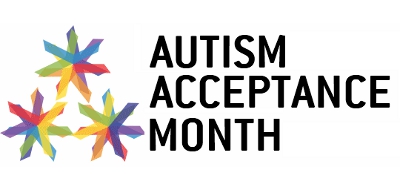How it feels being autistic in a world that apologizes for my existence.
By: Mary Wilson, Opinions Editor
When I tell people that I am autistic, the most common response I hear is, “I’m sorry.”

I’ve never been great at social skills, but this seems to be a confusing statement. Of all the possible responses, “I’m sorry” is perhaps the least helpful and most disheartening.
What confuses me the most about this is what they’re apologizing for. Literally, they are apologizing for my neurology. I realize not everyone sees it this way. Even today, too many people see autism as something fundamentally different than a person. As the saying goes, when I go to the airport, I don’t check my autism with my other suitcase.
Autism isn’t inherently good or bad. All neurology isn’t inherently good or bad. It just is.
Yes, autism comes with hard parts. I struggle to make consistent eye contact, something that our culture demands. I get overwhelmed easily in loud and overstimulating environments. I feel incredible anxiety when my routine is disrupted, or when plans change.. I have a longer processing time, so it can take me longer to understand new material, especially in tough courses. I am predisposed to anxiety and depression. I struggle to understand social cues and have historically had a hard time making and keeping friends.
All that can seem overwhelming. Perhaps this is why people tell me “I’m sorry” when I disclose that I’m autistic. Maybe they can only see the difficult parts of autism.
Let me explain some of my favorite parts of being autistic.
I don’t understand social cues too well, so I’m less preoccupied with social norms and expectations. This has proved useful when my neurotypical (or non-autistic) peers are afraid to reach out to someone in need, or ask tough questions.
I experience intense, pure, unadulterated joy. A characteristic that many autistic people share is excitability. The happiness I feel when I listen to my favorite songs, or when I talk about one of my special interests, is unmatched to anything I’ve ever experienced in my life.
Similar to joy is passion. Diagnostic manuals often refer to this passion as “restricted, narrow interests”, but clinical language doesn’t do my experience justice. I joke with my friends that I don’t have casual interests. When I find something I like, I dive into it without looking back. Writing has been one of my special interests for as long as I can remember. All that practicing has paid off: I’ve won multiple awards and competitions for my writing. Another one of my special interests is talking about psychology. That, too, has been useful: I’ve presented on more than seven panels at international conferences for Obsessive Compulsive Disorder and related disorders, alongside world-renowned professionals.
Autism gives me an increased ability to feel empathy. At times, this can be overwhelming, and I may become overstimulated or look like I don’t care. This contradicts what I’m feeling: such intense empathy that I feel like I’m going to burst. This has allowed me to stick up for what I know is right, even when I’m the only one doing so.
Being autistic has taught me resilience. I have to work harder than most people to understand social cues. I have had to overcome and learn compensatory strategies for my sensory issues and motor skill deficiencies. I have learned coping strategies for depression. I have learned to accept myself, autism and all, in a world that routinely tells me that I am not enough, that I am inferior, that I am broken, an empty shell of what I would have been.
So, yes, parts of my autistic experience are difficult. I have news, though: life is difficult, autism or not. Erasing or curing my autism would erase me. To say it a different way: I would not be who I am if I was not autistic.
So when people tell me that they’re sorry I’m autistic, what I hear is: “I’m sorry for your existence.”










